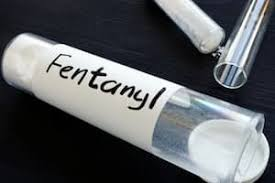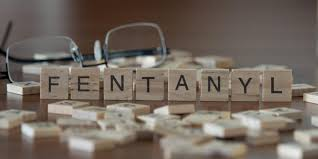Fentanyl Addiction Rehab
Immediate
Placement Available at our Top-Rated Treatment Centers.
Please call us at (855) 410-4488. We work
with most major insurance providers and offer flexible payment
options!
Atrium Addiction Care offers a variety of treatment choices and programs for individuals struggling with drug or alcohol addiction. Our inpatient treatment programs are designed for those who have more severe substance use problems and require 24-hour care. We admit both voluntary and involuntary patients.

Fentanyl addiction and overdose is a growing concern in North Carolina and across the United States. Fentanyl, a powerful synthetic opioid, is estimated to be 50–100 times stronger than morphine and has been linked to an increasing number of accidental overdose and deaths. Addiction to this drug can have devastating consequences for individuals and their families, making it essential that effective treatment options are available.
With individualized treatment plans tailored to meet each client's unique needs, Atrium Addiction Care offers hope to those seeking recovery from fentanyl addiction.
Atrium Addiction Care is one such option for those struggling with fentanyl addiction in North Carolina. As a specialized rehab center focused on substance abuse treatment, Atrium Addiction Care provides comprehensive care that combines evidence-based therapies with compassionate support from experienced professionals.
Understanding Fentanyl Addiction
Fentanyl and heroin addiction is a serious public health issue that has become increasingly prevalent in recent years. Fentanyl, a synthetic opioid pain reliever drug that is similar to morphine but much more potent, can be highly addictive and potentially lethal if improperly used.
The causes of fentanyl addiction are complex and multifactorial, involving both environmental and genetic factors. Some common risk factors for developing an addiction to prescription opioids or fentanyl include exposure to other substances, trauma or stress, prior substance abuse, and a family history of drug addiction.
Withdrawal symptoms associated with fentanyl addiction can be severe and often require professional medical assistance to manage effectively. Common withdrawal symptoms may include nausea, vomiting, diarrhea, muscle cramps, anxiety, depression, agitation, insomnia, and cravings for the drug.
Harm reduction strategies such as medication-assisted detoxification (MAT) and counseling services can help individuals safely navigate this difficult process while minimizing their risk of relapse. Family support is essential for those struggling with the effects of fentanyl addiction.
Family members can provide emotional support during treatment and recovery periods by attending group therapy sessions together or participating in support groups designed specifically for families impacted by addiction.
Additionally, relapse prevention techniques such as cognitive-behavioral therapy (CBT), motivational interviewing (MI), and contingency management (CM) have been shown to be effective in reducing the likelihood of relapse among people recovering from fentanyl addiction.
Signs And Symptoms Of Fentanyl Addiction
Fentanyl is a potent synthetic opioid that can cause addiction and dependence even after short-term use. Addiction to fentanyl carries various health risks, including an increased likelihood of overdose. Fentanyl overdoses are often fatal and require immediate medical attention.
Withdrawal symptoms are common in individuals who have developed a physical dependence on fentanyl. These symptoms can include nausea, vomiting, diarrhea, muscle pain, agitation, anxiety, insomnia, and cravings for the drug. Withdrawal from fentanyl can be challenging and uncomfortable but is necessary for recovery.
Long term effects of fentanyl addiction may include respiratory depression or failure, liver damage, heart problems, brain damage or cognitive impairment. Risk factors for developing a dependency on opioids or for abusing fentanyl include previous substance abuse issues, mental illness such as depression or anxiety disorder and chronic pain conditions.
Prevention strategies such as early intervention treatment programs and education around safe medication management practices can help reduce the risk of developing an addiction to this powerful opioid.
Overall it is important to understand the signs and symptoms of fentanyl addiction in order to receive prompt assistance with withdrawal symptoms which may occur when trying to quit using this drug. Awareness about long term effects prescription opioids and prevention strategies could also prevent someone from developing an addiction altogether.
Choosing A Rehab Center For Fentanyl Addiction
Finding the right rehab center for fentanyl addiction can be a daunting task, but it is essential to ensure that you receive the appropriate care and support needed to overcome this debilitating condition.
When choosing a drug rehab center, several factors need to be considered, such as treatment options, insurance coverage, location accessibility, medical supervision, personalized care, and success rates.
Treatment options are crucial when selecting a rehab center for fentanyl addiction. Some treatment centers may offer traditional methods of treatment such as detoxification and therapy sessions while others may provide alternative therapies like acupuncture or yoga. It's important to choose a facility that offers comprehensive treatment options tailored to your unique needs and circumstances.
Insurance coverage is another critical factor in determining which rehab center to choose. Before making any final decisions about where to go for treatment, make sure that your insurance will cover the costs associated with rehabilitation services. If not covered by insurance, consider discussing payment plans or financing options available at the facility.
Location accessibility should also be taken into account when considering rehab centers. A convenient location makes it easier for family members or loved ones to visit during the recovery process. Additionally, being closer to home may provide comfort and familiarity during what can be an emotionally challenging time.
Personalized care is essential when battling fentanyl addiction since no two individuals have the same experiences with opioid addiction. Look for facilities that offer individualized attention from trained professionals who understand how to address each patient's specific needs effectively.
Lastly, success rates are a vital indicator of which rehab center will work best for overcoming fentanyl addiction. Success rates reflect how well patients fare after completing their program at a particular facility; higher rates indicate better chances of long-term recovery.
In summary, finding the right rehab center can make all the difference in successfully overcoming fentanyl addiction. Consider all aspects such as treatment options, insurance coverage, location accessibility, personalized care, and success rates before making any final decisions on where to get help for yourself or someone else struggling with this condition.
Atrium Addiction Care's Approach To Fentanyl Addiction Treatment

Having discussed the considerations when choosing a drug rehab and treatment center for fentanyl addiction, it is now important to delve into Atrium Addiction Care's approach to treating this type of fentanyl addiction treated here.
Contrary to traditional treatment methods, which focus solely on detoxification and abstinence, Atrium Addiction Care offers a holistic approach that addresses not only the physical aspect of addiction but also the psychological and emotional components as well.
This comprehensive approach recognizes that every individual has unique needs and experiences, thus requiring an individualized treatment plan. Atrium Addiction Care understands that individuals with fentanyl addiction may have co-occurring mental health conditions such as anxiety or depression.
With their dual diagnosis program, they offer specialized care that targets both substance abuse disorder and mental illness simultaneously.
Their team of highly trained professionals employs evidence-based practices in psychotherapy, behavioral therapy, and cognitive therapy to help patients overcome their addiction while managing underlying mental health issues.
In addition to counseling services, Atrium Addiction Care also utilizes medication-assisted therapy (MAT) where appropriate. MAT can be effective in curbing cravings and reducing withdrawal symptoms during detoxification, ultimately increasing the likelihood of successful recovery outcomes. Family involvement is another integral component of Atrium Addiction Care's approach to fentanyl addiction treatment.
It acknowledges the significant role family plays in supporting an individual throughout their recovery journey and towards sobriety; therefore, involving them in therapeutic activities can foster familial support systems conducive to long-term recovery success without alienating those suffering from drug dependency disorders from loved ones who can make all the difference in helping them fight through these tough times.
Our Team Of Professionals - fentanyl abuse
Our team of professionals at Atrium Addiction Care works collaboratively to provide individualized treatment for fentanyl addiction. With their diverse areas of expertise, our team ensures that each patient receives comprehensive care that incorporates evidence-based practices, medication management and a holistic approach.
At the core of our program is collaborative care, which involves a multidisciplinary team working together to address the various aspects of addiction. Our team includes licensed therapists, medical doctors, psychiatrists, nurses, and support staff who all work together to ensure that each patient's needs are met. This approach allows us to develop personalized treatment plans that take into account each patient's unique circumstances.
We believe in using evidence-based practices as the foundation for our treatment programs. By utilizing techniques with proven effectiveness, we can help patients achieve long-term recovery from their addiction.
Additionally, we take a holistic approach to addiction treatment program, by addressing not only physical symptoms but also emotional and spiritual wellbeing. Our goal is to empower patients with the tools they need to overcome addiction and lead fulfilling lives beyond treatment.
What To Expect During Fentanyl Addiction Rehab

Fentanyl addiction can cause severe side physical effects and psychological dependence on other drugs, which makes it challenging to quit without professional help. Entering a rehab program is an important step towards recovery opioid overdose.
During a fentanyl detox or addiction rehab, patients undergo various treatments designed to alleviate the withdrawal effects and symptoms, address underlying issues that contribute to drug use, and provide relapse prevention strategies.
Withdrawal symptoms from fentanyl are intense and uncomfortable. They include nausea, vomiting, diarrhea, sweating, anxiety, depression, and cravings for the drug. Detoxification is usually the first stage of fentanyl withdrawal in addiction rehab. Medical professionals monitor patients closely during this process to ensure their safety and comfort. Medications may be prescribed to ease withdrawal symptoms.
Once detoxification is complete, other substances and therapy options become available. Patients have access to individual counseling sessions with licensed therapists who specialize in substance abuse treatment. Group therapy is also offered as part of many programs where individuals can share experiences with others facing similar challenges. Family involvement in therapy and group sessions can enhance communication skills necessary for successful long-term recovery.
A holistic approach is often taken by many rehabilitation centers when treating fentanyl addiction because it addresses the whole person rather than just focusing on one aspect of their life or condition. This type of care recognizes that each patient has unique needs requiring personalized attention beyond traditional medical intervention. Holistic therapies such as yoga, meditation, art therapy or acupuncture may be used alongside conventional medicine to promote overall health and well-being.
The road to recovery from fentanyl addiction requires effort and dedication from both the patient and healthcare providers involved in their care plan. Through comprehensive treatment options including medications for withdrawal management along with ongoing support provided through family involvement & relapse prevention techniques - individuals struggling with opioid dependency can find hope again!
Aftercare And Support For Long-Term Recovery - severe pain

Family support is a critical component of long-term recovery from fentanyl addiction. Research conducted at the Atrium Addiction Care in North Carolina indicates that family involvement in the recovery process can lead to better outcomes and more successful long-term recovery for individuals.
Community connections can also be beneficial for long-term recovery, as those in recovery may benefit from the support and resources provided by social services and community organizations.
Additionally, engaging in meaningful activities can aid in the development of meaningful and lasting relationships with peers in recovery, providing additional support and encouragement for sustained recovery.
Family Support - north carolina fentanyl addiction treatment
As one of the three most common drugs debilitating forms of addiction, fentanyl dependency can wreak havoc on an individual's life and their family. While the road to recovery from the effects of fentanyl and misuse is fraught with challenges, familial support can make a significant difference in ensuring long-term sobriety.
Effective communication plays a crucial role in this regard as it helps establish trust between recovering individuals and their families. Coping mechanisms also play a vital role in supporting someone struggling with fentanyl addiction. Family members need to understand that relapse may happen despite the best efforts of those undergoing treatment.
Education about how to identify triggers, cope with cravings, and provide emotional support is essential for everyone involved abuse fentanyl using. Building trust is another critical aspect of family support during rehab for fentanyl addiction. Recovering individuals must feel comfortable discussing their struggles and setbacks without fear of judgment or criticism from loved ones.
In turn, family members should be open and honest about their concerns while offering unconditional love and support through every step of the process. In conclusion, seeking help for fentanyl addiction requires more than just professional intervention; it necessitates unwavering familial support throughout the journey towards recovery.
By emphasizing effective communication, coping mechanisms, education about the nature of addiction, building trust, and taking steps towards seeking help when needed, families can create an environment conducive to healing and long-lasting sobriety.
Community Connections - fentanyl addiction treatment program

Aftercare and support are essential components of long-term recovery from fentanyl addiction. While familial support is crucial, community involvement can also play a significant role in maintaining sobriety.
Peer support groups such as Narcotics Anonymous provide individuals with a safe space to share their experiences and receive emotional support from others who have battled similar opioid addictions themselves.
Family therapy can also benefit those struggling with fentanyl addiction by addressing underlying issues that may contribute to substance abuse. Holistic healing approaches, such as yoga or meditation, can help individuals cope with stress and anxiety, which often trigger substance use.
These practices promote overall well-being and enhance the effectiveness of traditional treatment methods. Relapse prevention prevent relapse is another critical aspect of aftercare and support for individuals in recovery from fentanyl addiction.
Community resources like sober living homes offer a structured environment where individuals can practice healthy, coping skills and mechanisms while receiving ongoing professional care.
Furthermore, these homes encourage accountability among residents while providing opportunities for socializing without the pressures associated with typical social settings. In conclusion, aftercare and support are vital components of long-term recovery from fentanyl addiction.
Community involvement through peer support groups, holistic healing approaches, family therapy, relapse prevention measures like sober living homes all work together to create an environment conducive to sustained sobriety. By utilizing these resources post-treatment, individuals increase their chances of achieving lasting success on their journey towards healing and overcoming addiction.
Conclusion
Fentanyl addiction is a serious problem that requires professional help for recovery. Individuals struggling with this type of addiction may experience physical, psychological, and social consequences that can negatively impact their quality of life.
Atrium Addiction Care offers evidence-based treatments designed to address the unique needs of those struggling with fentanyl abuse and addiction other substance using. By choosing Atrium Addiction Care's rehab center in North Carolina, individuals with fentanyl abuse can receive comprehensive care from experienced professionals who are committed to helping them achieve long-term recovery.
The team at Atrium Addiction Care provides customized treatment plans tailored to each individual's specific needs, including medical detoxification, therapy sessions intensive outpatient program, and aftercare support. With effective interventions and ongoing support, it is possible for those suffering from fentanyl addiction to overcome this challenge and rebuild their lives.
